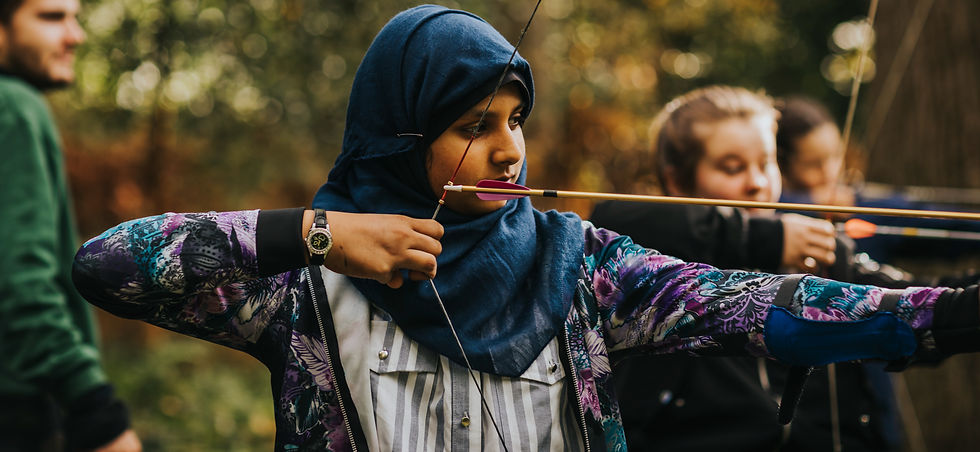

Outdoor Residential Trip and Day Visit Programmes
Adventure Awaits...
At the core of our approach is the belief that immersive, hands-on experiences lead to profound personal growth and development. Our Ufton Adventure programme, with its emphasis on challenge, teamwork, outdoor learning and trauma-informed effectiveness, was designed to engage children in ways that traditional methods couldn’t.
This previously standalone programme has now evolved to become part of our fabric at Ufton and guides everything we do. By weaving these principles into every aspect of our Ufton Outdoors and Ufton History programmes, we are enhancing not just the educational outcomes but the emotional and social skills of those we work with.
Ufton Outdoor School Trips
Our single-day outdoor school trips and outdoor residential trip programmes for primary and secondary schools provide meaningful experiences with nature that give children the freedom to flourish outside the classroom.
Every one of our outdoor school trips are designed around four key values:
-
Education and Learning. Integrating hands-on opportunities that complement the national curriculum and foster a deeper understanding of various subjects.
-
Personal Development. Building confidence and developing, critical thinking, creativity problem-solving, resilience, and leadership skills through immersive outdoor experiences.
-
Health and Wellbeing. We recognise the profound impact that nature and physical activity have on mental and physical health.
-
Environmental Stewardship. Instilling a sense of responsibility and respect for the natural world, and inspire children to actively engage in the conservation and sustainable use of our environment.
Together, these values create a holistic approach to outdoor education that nurtures both individuals and the planet. Each of our outdoor school trips encompass a range of activities, from team-building, environmental, construction and outdoor crafting activities to science and water-based activities, forest skills and more. Make an enquiry today
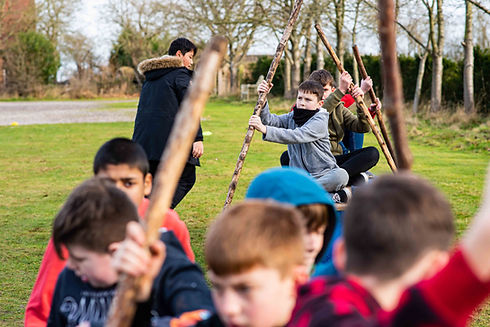


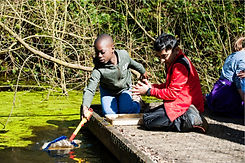
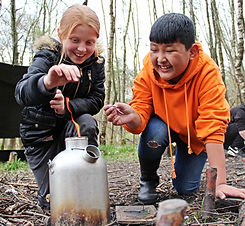
What Our Outdoor Learning Programmes Deliver
Education and Learning
-
Experiential Learning: Hands-on, experiential education that allows participants to learn through direct engagement with the natural environment.
-
Curiosity and Discovery: Encouraging a spirit of curiosity and exploration, fostering a love for learning and discovery.
-
Knowledge Sharing: Providing accurate and relevant information about ecology, geology, biology, and other environmental sciences.
Health and Wellbeing
-
Physical Wellbeing: Promoting physical activity and the benefits of spending time outdoors for overall health.
-
Mental and Emotional Wellbeing: Providing opportunities for relaxation, mindfulness, and stress relief, enjoying the mental and emotional benefits of nature.
-
Holistic Health: Advocating a balanced approach to wellbeing, integrating physical, mental, and emotional health.
Personal Development
-
Growth and Challenge: Opportunities for participants to step out of their comfort zones, fostering personal growth and resilience.
-
Leadership and Teamwork: Development of leadership, teamwork, collaboration and communication skills.
-
Self-Reflection: Promoting self-awareness and reflection, helping individuals understand themselves, their relationships with others and the environment.
-
Risk Management: Emphasising safety and responsible risk-taking, teaching participants to assess and manage risks in outdoor settings.
Environmental Stewardship
-
Respect for Nature: Fostering respect for the natural world and encouraging sustainable practices.
-
Conservation: Preserving and protecting natural environments and wildlife.
-
Sustainability: Promoting environmentally responsible behaviours and teaching sustainable living practices.
-
Connection to Place: Cultivating a deep connection to specific places, encouraging participants to appreciate and care for the environments they explore.
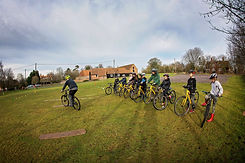
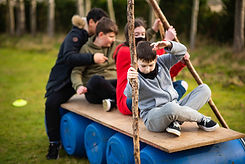
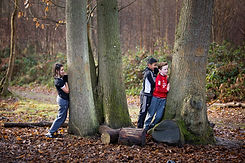
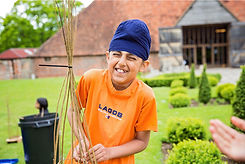
Ufton Outdoor Programmes
Bushcraft Adventures
KS2 and KS3
Embark on an exciting journey and discover the thrill of living in harmony with nature with Bushcraft Adventures, designed for KS2 and KS3 students eager to learn the art of survival in the wild.
This hands-on programme equips young explorers with essential bushcraft skills, from building shelters and starting fires to foraging for food and navigating using nature.
Guided by expert instructors, students will develop resilience, teamwork, and a deeper connection to the natural world. Whether crafting tools from the environment or mastering outdoor cooking, Bushcraft Adventures offers an unforgettable experience that blends adventure with practical life skills.
Trip Options:
-
Outdoor Residential Trip: 1 night and 2 days (with option of treehouse camping March-October)
-
Day Visits
-
Extended Day Visits
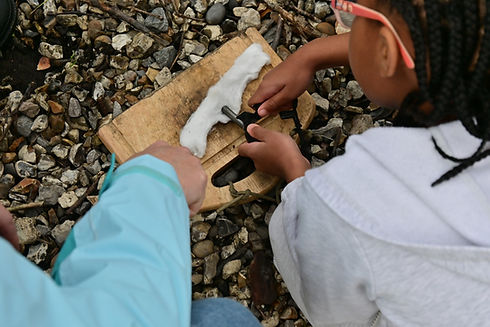
Outdoor Challenge
KS2 and KS3
Our Challenge programme is designed to push participants beyond their limits, offering a transformative experience that fosters personal growth and teamwork.
The programme encourages individuals to feel something—whether it's the thrill of overcoming fear, the pride in conquering a tough challenge, or the resilience demonstrated in the face of discomfort.
Participants are also given the opportunity to build something meaningful by working together as a team, which cultivates essential skills such as collaboration, communication, leadership, and engagement.
Additionally, the programme invites participants to try something new, stepping out of their comfort zones and embracing new experiences with courage and curiosity.
Through these elements, the Challenge programme aims to develop well-rounded individuals who are confident, adaptable, and equipped to tackle future challenges. With a range of activities to choose from, from Power Tower, Tripod Swing and Bridge Challenge to Low Ropes, Plank Walk, Multi Ball, Caterpillar Walk and more, Challenge trips can be personalised for your school trip.
Trip Options:
-
Outdoor Residential Trip: 1-2 nights
-
Day Visits
-
Extended Day Visits
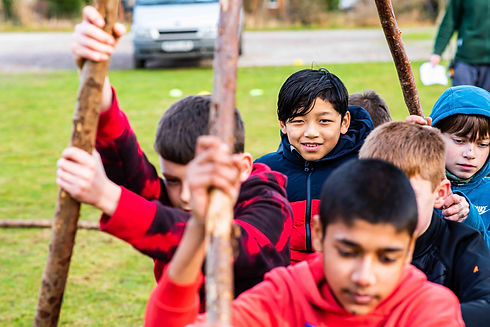
Woodland Discovery
EYFS and KS1
Step into the enchanting world of Woodland Discovery, where young adventurers are invited to explore, discover, and connect with nature.
This hands-on programme encourages children to use their senses as they wander through the woods, feel the textures of trees, listen to the rustling leaves, and spot the hidden wonders of the forest.
Through guided activities, children will build a deeper appreciation for the natural world, nurturing their curiosity and sparking a lifelong love for the environment.
Join us on a journey where every twig, leaf, and creature tell a story!
Trip Options:
-
Day Visit
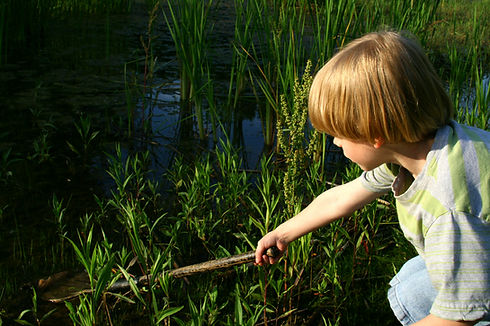
Navigators
Map and Compass Skills
KS1 and KS2
Embark on an exciting journey with Navigators, a programme specially designed to develop key curriculum skills for KS1 and KS2 students.
Through fun, hands-on activities, children will learn the fundamentals of map reading, compass use, and basic navigation techniques. Whether they’re following a treasure map or plotting a course through the Ufton’s Ancient Woodland grounds students will enhance their spatial awareness, problem-solving abilities, and understanding of geography.
Navigators not only builds confidence in outdoor exploration but also reinforces classroom learning in a dynamic and engaging way. Get ready to chart your course to adventure!
Trip Options:
-
Day Visit
-
Extended Day Visit

Project Bees
Book Now for 1 April 2026
A Journey into Habitats and Sustainability
KS1 and KS2
Join us for Project Bees, where curiosity meets conservation! This engaging and interactive programme invites participants to explore the fascinating world of bees and their vital role in our ecosystems.
Dive into the intricate relationships between habitats, adaptation, and food chains, learning how these tiny pollinators are key to the sustainability of our environment.
Discover the delicate balance within ecosystems, the importance of biodiversity, and how our actions can protect or endanger these vital systems.
Together, we'll unlock the secrets of nature, fostering a deeper understanding of and commitment to preserving our planet for future generations.
Trip Options:
-
Day Visit
-
Extended Day Visit

